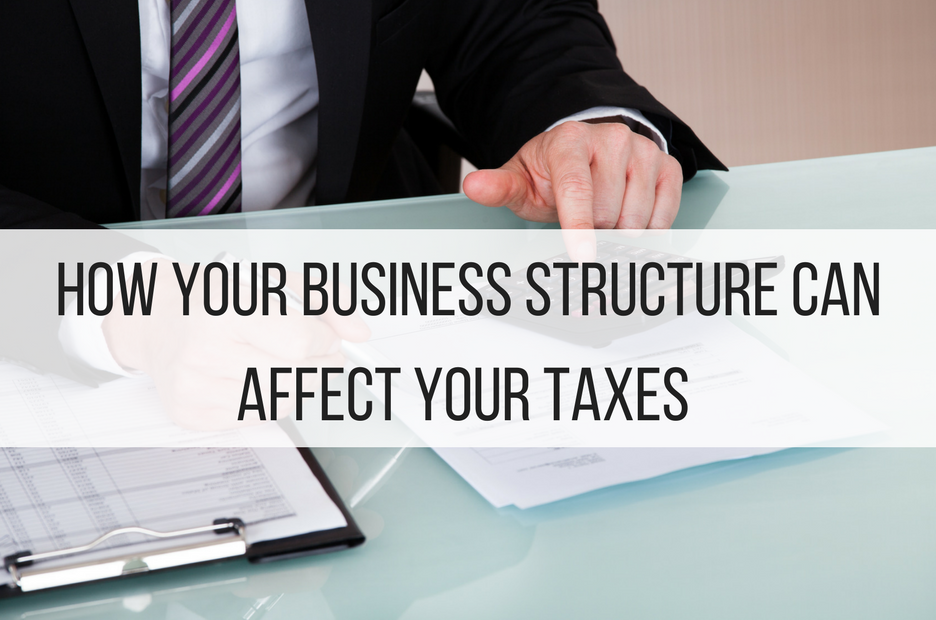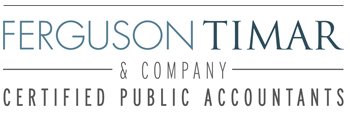
One of the most important aspects of business ownership is knowing how your taxes are affected. Things like filing deadlines, deductions, employment forms and self-employment tax can all affect your taxes. But did you know that your business structure also plays a part in your taxes? We at Ferguson, Timar & Co. have compiled how three different business structures can affect you and your business when you file for tax returns. Take a look!
1. Sole Proprietorship/DBA
If you are a sole proprietorship or a registered DBA (doing business as), all your business taxes are rolled into your personal tax return. Your income, losses and deductions will be factored in and you’ll use a Schedule C form in addition to your normal Form 1040.
Understand you will be required to pay self-employment taxes for social security and Medicare contributions. The IRS website will provide you with the most recent self-employment tax rate and current income ceiling.
A sole proprietorship is a great business structure for someone just starting out who wants to keep things fairly simple (at least at the beginning), or if it is a side business that doesn’t bring in a major profit each year. The filing deadline for a sole proprietorship is April 15 of each year (April 18, 2017)
2. Limited Liability Company (LLC)
An LLC offers some separation between the business owner and the business, in case of law suits, debts or tax audits. The owner(s) of an LLC are responsible for paying taxes on their share of the profits/income. Self-employment taxes must also be paid.
An LLC has the option to elect S Corporation tax treatment, which means business profits and deductions can be reported with a personal tax return. S Corporation filing also allows you to separate your salary and distributions. Only the salary would be subject to FICA taxes for Medicare and social security. Just know that you will want to pay yourself a reasonable salary. If it looks suspiciously low in relation to your business income, the IRS will check it further.
An LLC is still a relatively simple business structure for filing taxes, but it offers more separation between personal assets and business liabilities. If you anticipate a loss in the first year or two, an LLC offers a chance to reflect this on your personal tax return. The S Corporation election can also reduce self-employment taxes, but should be handled carefully. The filing deadline for an LLC is March 15 of each year, unless a proper extension is filed.
3. Corporation
A corporation structure provides even more separation between your business liabilities and your personal assets because it is a separate legal entity altogether. Its credit rating is different, taxes are filed separately and it can be sued.
Be careful of “double taxation,” which is when both the company and the owners taking out profits as salary are each taxed. An S Corporation election can be made to treat the company as a “pass through” entity, so only the owners are taxed for profits and losses. You’ll want to consult with a professional tax advisor to understand all your regulations, restrictions and options as a corporation.
Corporations are naturally more complex tax returns and you will still have to file your personal return separately. However, they offer better separation between business liabilities and personal assets and could be subject to lower corporate tax rates. March 15 is the typical filing date for corporate entities.
Thinking about changing your business structure? It is helpful to get tax advice and support from professionals who understand the different filing processes and how your taxes will be affected. Contact Ferguson, Timar & Company today for a tax consultation.

Leave a Reply